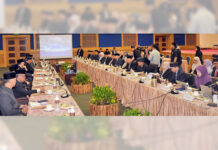(ANN/THE KOREA HERALD) – An international study reveals that one in five women in South Korea has faced threats of intimate images being released, the highest rate among 10 surveyed countries.
Research by RMIT University in Melbourne, Australia, in partnership with Google, surveyed 16,693 adults across 10 countries, including 1,641 from South Korea.
The study found that 19.1 per cent of South Korean women reported experiencing sexual extortion, defined as threats to share intimate photos or videos unless the victim meets the perpetrator’s demands.
Among South Korean male respondents, 9.4 per cent reported similar experiences, the second-lowest rate.
These figures place South Korea out of sync with the study’s overall findings across surveyed countries, where typically men are targeted relatively more, reporting victimisation at 15.7 per cent, while women report 13.2 per cent.
Across all 16,693 respondents, irrespective of gender, 14.5 per cent reported being victims of sexual extortion, while 4.8 per cent admitted to being perpetrators.
The most common type of perpetrator was a former or current partner, but men were more likely than women to report being victimised by a colleague or caregiver.

Additionally, South Korea reported an unusually high percentage of female perpetrators, with 16.3 per cent of women admitting to having committed acts of sexual extortion.
This figure is markedly higher than the 1.1 per cent to 5.3 per cent range observed in other countries. Furthermore, 15.2 per cent of Korean women reported having both victim and perpetrator experiences, the highest rate among all surveyed nations.
The study suggested that the widespread prevalence of image-based sexual abuse in South Korea could be a significant factor contributing to these distinct patterns.
“We can hypothesise that when individuals are threatened with the dissemination of their images, some might retaliate by threatening to share the perpetrator’s images in return,” lead researcher and RMIT professor Nicola Henry from RMIT’s Social Equity Research Centre, said.
Co-author Rebecca Umbach, who is a researcher at Google, stressed the lack of studies focusing on adult victims of sexual exploitation, noting, “Most research has centered on minors or specific groups, but this study shows that sexual exploitation among adults is common and underscores the need for more research and resources.”
Umbach also stressed the need for joint efforts from technology companies and regulatory bodies to develop policies and protocols aimed at detecting, preventing and responding to sexual crimes, highlighting the shared responsibility in tackling this pervasive issue.



















































